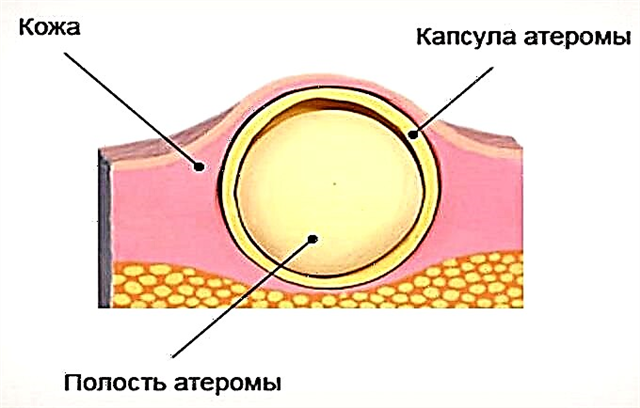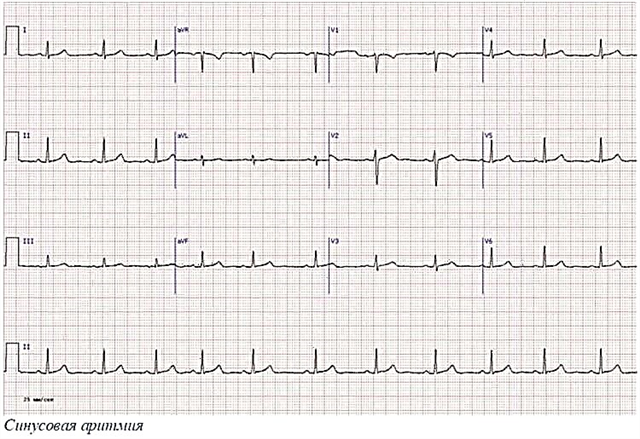Itching is a signal from the body that makes you pay attention to a particular organ. This unpleasant sensation can be hard to ignore, especially if the scalp is itchy, such as in the parotid region. Why does it itch behind the ears? This feeling is based on irritation of nerve endings under the influence of various mediators, primarily histamine.
 Allergy sufferers are familiar with this phenomenon, since it is histamine that plays an important role in the development of an allergic reaction. It's not just allergies that cause itching - it can be caused by infection, insect bites, contact with irritating chemicals, and more. Itching is characterized by the emergence of an irresistible desire to rub, scratch the irritated area. Scratching can damage the outer layer of the skin. Damage to the skin only intensifies itching and leads to the appearance of secondary problems such as infection, purulent inflammation, scarring, etc. That is why it is very important to treat the itching behind the ears, as long as the integrity of the epidermis is not compromised.
Allergy sufferers are familiar with this phenomenon, since it is histamine that plays an important role in the development of an allergic reaction. It's not just allergies that cause itching - it can be caused by infection, insect bites, contact with irritating chemicals, and more. Itching is characterized by the emergence of an irresistible desire to rub, scratch the irritated area. Scratching can damage the outer layer of the skin. Damage to the skin only intensifies itching and leads to the appearance of secondary problems such as infection, purulent inflammation, scarring, etc. That is why it is very important to treat the itching behind the ears, as long as the integrity of the epidermis is not compromised.
Possible reasons
Why does it itch behind the ears of a person? The reasons for this phenomenon are very diverse. So, itching of the parotid region of the skin occurs under the following conditions:
- seborrheic dermatitis - skin inflammation associated with hyperactivity of opportunistic fungal skin microflora; accompanied by flaking, itching, dandruff;
- an allergic reaction to dust mites, jewelry, cosmetics (for example, if a woman itches behind her ears after dyeing her hair, consider the possibility of an allergy to the coloring agent);
- psoriasis is a multifactorial disease; its main symptom is a rash covered with dense keratinized skin scales; in many cases, psoriasis primarily affects the area behind the ears and the scalp;
- with otomycosis - a fungal infection of the outer ear - itching behind the ears, in the auricles and in the ear canal worries;
- with atopic dermatitis, the skin behind the ears itches, gets wet, turns red; it usually affects other areas of the body where the skin is thin and dry.
It is not always easy to independently determine why it is your ears that itch, - it all depends on the severity of the accompanying symptoms. To identify the true cause of the disease, an examination and consultation with a dermatologist will be required. In some cases, tests are needed to clarify the diagnosis.
Seborrheic dermatitis
Seborrheic dermatitis is a fungal disease that affects areas of the skin rich in sebaceous glands. If a person suffers from itching in the parotid area, first of all, the possibility of this disease should be considered.
Seborrheic dermatitis develops as a result of an increase in the number of fungi of the genus Malassezia in the skin microflora. It is known that people suffering from hypersecretion of the sebaceous glands are susceptible to this disease (the fungus feeds on lipids that are part of the sebum). Malassezia is considered an opportunistic fungus, meaning it is present on the skin of most healthy people. With a decrease in immune defense (for example, with hormonal imbalance, a sharp change in climate, treatment with antibacterial drugs, etc.), the amount of fungal microflora increases significantly. As a result, such violations develop:
- peeling of the skin behind the ears;
- dandruff;
- itching;
- oily skin and hair;
- the appearance of a rash ("irritation") as a result of inflammation of the sebaceous glands;
- reduced skin resistance to infectious and chemical irritants.
Some symptoms are due to the influence of the waste products of the fungus on the skin, others are due to a decrease in the number of beneficial bacteria (since fungi and bacteria constantly compete for the surface of the epithelium as a habitat).
Seborrheic dermatitis primarily affects the scalp - the scalp, the upper part of the forehead and the area behind the ears. In rare cases, the inflammation spreads to the groin and armpits.
The affected skin behind the ears often cracks and bleeds. The situation is aggravated by patients scratching their skin (this increases the risk of a secondary infection). The fungus that causes seborrheic dermatitis can also affect the ear canals - in which case otitis externa occurs.
If untreated, seborrheic dermatitis develops into seborrheic eczema.
Diagnostics
Itching behind the ear - what could it be? It is not always possible to independently determine the exact cause of the disease.
A patient who is concerned about itching and peeling of the skin behind the ears should see a dermatologist. Such symptoms are often the harbingers of serious systemic pathologies - there is no need to waste time.
Some diseases can be diagnosed on the basis of a face-to-face examination (for example, with psoriasis, the rash looks typical, and an experienced doctor is unlikely to confuse it with something else). Others will require more research. So, the diagnosis of otomycosis is based on the results of bacteriological culture of a smear from the affected surface.
Diagnosis of seborrheic dermatitis, in addition to seeding the skin microflora, includes the following studies:
- blood chemistry;
- a blood test for hormones (testosterone, cortisol, thyroid hormones);
- in some cases, ultrasound of the thyroid gland;
- collection of anamnesis - the patient's complaints, his feelings, history of the development of symptoms, family history.
If an allergic factor is suspected, the patient is asked to take a blood test for immunoglobulins E (markers of an allergic reaction).
Treatment
There is no universal remedy that can cure itching behind the ears of any etiology. However, there are drugs that can improve the well-being of patients, regardless of what causes the itching. For example, many topical preparations with cooling and moisturizing ingredients can time to calm the discomfort. Ointments containing analgesic components also relieve itching (as they reduce the sensitivity of nerve endings).
time to calm the discomfort. Ointments containing analgesic components also relieve itching (as they reduce the sensitivity of nerve endings).
If the itching behind the ears is constant and severe, the doctor may prescribe sedatives (sedatives, usually in the form of pills). Antihistamines are also effective (usually prescribed for allergies). Their action is based on blocking the production of histamine, an inflammatory neurotransmitter. Due to this, the main symptoms of inflammation are suppressed - itching, pain, swelling, redness, etc. Antihistamines are also the drugs of choice for itching behind the ears caused by allergic dermatitis. In addition to taking antihistamines, the patient must limit contact with allergens.
It is important to understand that relieving symptoms is not a cure. To get rid of annoying itching behind the ears forever, it is necessary to eliminate the cause of the disease.
Treatment should be based on what causes the unpleasant symptoms. That is why it is so important to establish the correct diagnosis. When the root cause of the disease is eliminated, the unpleasant symptoms will go away on their own.
So, the treatment of seborrheic dermatitis, like many other superficial mycoses, includes drugs containing antimycotic substances - selenium disulfide, lithium succinate and ketoconazole.
If the skin is peeling, but there are no inflamed areas, you should moisturize it with a cream. During treatment, you should use only those cosmetics (cream, shampoo, shower gel, etc.) that are approved by the doctor.



